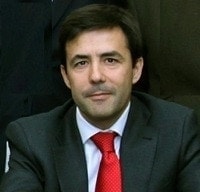
Ferrovial Services executive Miguel Prieto Campos was interviewed by EnerTIC about the importance of energy efficiency for our business.
Do you consider enhancing energy efficiency is a strategic need in your industry?
I do. Achieving greater energy efficiency will make companies more competitive in this globalised market, while also fulfilling the environmental commitment we have to future generations.
How important is energy efficiency for Ferrovial Services? What role does the Technical Director play in this area?
Energy efficiency is one of our company’s strategic lines of business. In fact, it’s so important that we created a Centre of Excellence to spearhead this activity for all our subsidiaries.
The Technical Department, which I head, is responsible for commercial development, technical analysis, and implementation of energy services projects for cities, hospitals, industries, etc.
Does your company have a strategic plan in this area?
It does. We are currently designing a second strategic plan for the development of energy efficient services.
What are the plan’s objectives? What results have been obtained to date?
The main objective is to use public-private partnerships to help the main public administrations improve current facility conditions by enhancing the energy efficiency of buildings and infrastructure, allowing for better service for citizens.
For example, we are currently responsible for energy management in street lighting and/or buildings for the cities of Bilbao, Madrid, Torrejón, Soto del Real, Tacoronte, Burriana and Teulada, as well as Extremadura’s Ministry of Agriculture and Castilla y León’s Social Services Department, and it is achieving energy savings of over 50%.
Do you believe this kind of strategic plan is important? What kind of barriers must be overcome?
It’s imperative that the goals of the strategic plan be analysed and defined in detail, as this enables us to identify where we want to go and how to get there in the medium term. In some cases, the main barrier is funding the necessary investments. Often times this is due to uncertainty about the real returns that will be obtained from energy saving strategies.
How committed is management to energy efficiency?
Management is fully committed. We created a Centre of Competence, headed by a member of the Management Committee, to manage expertise in energy efficiency.
Is government doing enough to promote energy efficiency at companies?
One of the main items in the European Directive (2012/27/EU) on Energy Efficiency is the role that government should play, leading by example with public buildings. The fact is that there is notable scope for savings in public buildings and infrastructure, and there is a lot of work to be done to achieve the saving objectives set out in the Directive.
Do you consider the aid and subsidies available at national and EU level to be sufficient? Do you use them?
Given the current situation, and difficulties in accessing funding for investments and projects of this type, what aid exists falls far short of actual needs. We obtained some EU funding for the TEDS4BEE project, to develop IT systems for more efficient facility management.
In your opinion, how important is ICT for advancing energy efficiency and sustainability?
It’s absolutely imperative, for continuous monitoring of facilities’ energy performance and for strategic decision-making, allowing us to incorporate improvements throughout the lifecycle of buildings and infrastructure.
Do you believe the ICT industry’s expertise, commitment and performance in this area is sufficient?
In recent years, major progress has been achieved in developing solutions to improve energy management; however, as the market is not yet mature, I believe there is considerable scope for further development.
Where do you believe investment is needed most to be able to advance further? Is the right aid available?
I believe the greatest challenge is developing tools that enable us to predict future performance so that we can anticipate decisions about operation and maintenance, additional investments in new technologies, and procurement negotiations with our main suppliers.






There are no comments yet